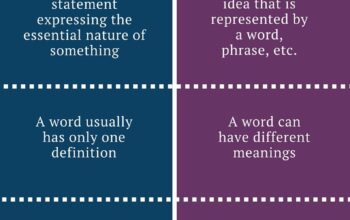Instrumentation and control engineering is a multidisciplinary field that intricately weaves together the principles of physics, mathematics, and engineering to design, analyze, and implement control systems. This vital sector plays a pivotal role in myriad applications, spanning industries such as manufacturing, aerospace, energy, and healthcare. At its core, instrumentation and control engineering aims to enhance the efficiency, safety, and reliability of systems by developing sophisticated methods to monitor and manage process variables.
To fully appreciate the significance of this discipline, it is essential first to discern the key components: instrumentation, control, and their interrelationship. Instrumentation refers to the devices and techniques employed to measure physical quantities such as temperature, pressure, flow, and level. These devices—ranging from thermocouples to pressure transducers—convert physical phenomena into measurable signals. Control, on the other hand, pertains to the mechanisms used to manipulate these variables to achieve desired outputs or maintain system stability. Together, these facets empower engineers to design systems that autonomously regulate complicated processes, thus ensuring optimal performance.
Central to the field is the concept of feedback. Feedback loops constitute the very backbone of control systems, wherein the output of a system is fed back into the controller to modify its behavior. This dynamic process allows for adjustments in response to disturbances, ensuring that the system remains within predefined operational parameters. Engineers harness the principles of negative and positive feedback to craft systems that achieve equilibrium, ultimately fostering reliability and precision in operations.
A salient feature of instrumentation and control engineering is its emphasis on automation, an area that has gained substantial traction in contemporary industry settings. The advent of Industry 4.0, characterized by the fusion of digital technologies with manufacturing processes, has amplified the demand for automated control systems capable of executing tasks with minimal human intervention. Such systems leverage advancements in artificial intelligence and machine learning to optimize performance, reduce errors, and enhance productivity.
Moreover, the integration of the Internet of Things (IoT) into instrumentation and control engineering signifies a transformative shift in perspective. IoT devices enable real-time monitoring and data analytics, fostering an environment in which interconnected systems communicate seamlessly. This holistic approach not only facilitates remote control and management but also paves the way for predictive maintenance, thereby preemptively addressing potential issues before they evolve into major failures.
In addition to these advancements, instrumentation and control engineering is laden with challenges and opportunities for innovation. One critical challenge lies in the design of control algorithms that can accommodate system non-linearities and uncertainties. Non-linear systems, characterized by complex relationships between inputs and outputs, necessitate advanced control strategies beyond traditional linear paradigms. Consequently, engineers often turn to sophisticated model predictive control techniques, which utilize mathematical models to predict future behavior and optimize control actions accordingly.
Furthermore, the rise of renewable energy sources introduces another layer of complexity. Engineers in this domain grapple with intermittent energy generation from sources such as wind and solar power. The integration of these volatile sources into existing grids requires ingenuity in control strategies to maintain grid stability while maximizing energy utilization. As the demand for sustainable energy solutions intensifies, the importance of robust instrumentation and control engineering accelerates correspondingly.
Another promising avenue lies in the burgeoning field of biomedical instrumentation. Innovations in medical devices and health monitoring systems harness the principles of this engineering discipline to elevate patient care. For instance, wearable technology can continuously monitor vital signs and transmit data to healthcare providers. This real-time feedback not only empowers patients to manage their health proactively but also enables clinicians to make informed decisions based on empirical data, enhancing diagnostic accuracy and treatment efficacy.
Career prospects in instrumentation and control engineering are diversely rich, offering various roles across public and private sectors. Professionals in this field may engage in research and development, system design, or compliance enforcement, ensuring adherence to safety standards and regulations. These careers often necessitate a blend of analytical skills, creativity, and technical proficiency, often leading to collaborations with multidisciplinary teams. Such collaborations can illuminate insights hitherto unseen, further enriching the field’s evolution.
Education and training in this discipline typically encompass a solid foundation in mathematics, physics, and communication skills, coupled with specialized coursework in control theory, signal processing, and industrial automation. Advanced degrees may delve deeper into niche areas such as robotics, avionics, or environmental monitoring systems, embracing a distinct breadth of knowledge crucial for tackling contemporary challenges.
In conclusion, instrumentation and control engineering is a dynamic discipline that serves as a cornerstone for technological innovation and industrial efficiency. With a focus on automation, real-time data analytics, and sustainable practices, this field is poised to revolutionize not only how industries operate but also how we engage with the world around us. As the landscape shifts in response to societal challenges and technological advancements, the role of instrumentation and control engineers will be paramount in orchestrating a future where systems operate seamlessly and responsibly—promising a realm of endless possibilities.











